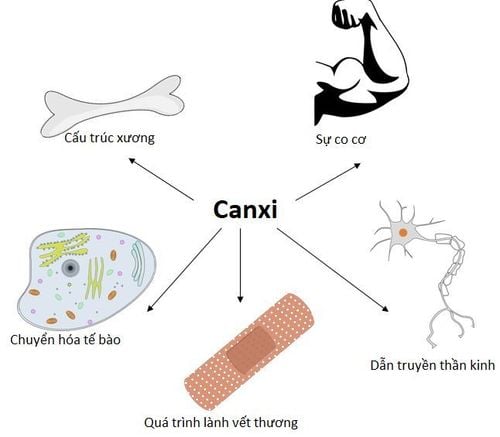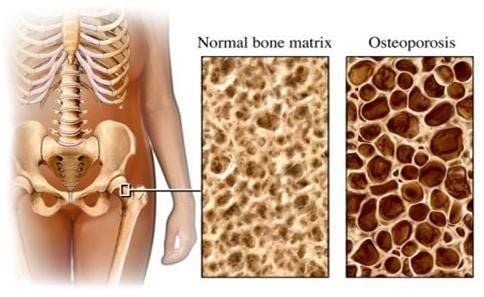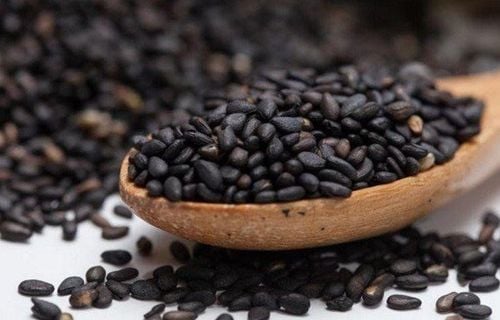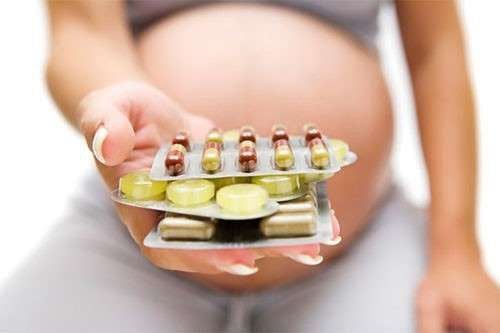This article has been professionally reviewed by Specialist Level I, Truong Nghia Binh, an obstetrics and gynecology doctor at the Obstetrics and Gynecology Department, Vinmec Da Nang International General Hospital. With over 13 years of experience in the field, Dr. Binh specializes in the examination and treatment of obstetrics and gynecology-related conditions.
Calcium supplementation for postpartum mothers is essential, especially for those exclusively breastfeeding. During this period, the calcium a baby absorbs primarily comes from the mother’s breast milk. If breast milk does not supply adequate calcium, it can significantly impact the baby’s development and the mother’s health. This article aims to help postpartum mothers understand the importance of calcium supplementation after delivery and how to do so correctly and adequately.
1. The Essential Role of Calcium in the Body
In the human body, calcium ions are concentrated predominantly in the bones (99%), with only 1% present in the blood and soft tissues. Calcium plays a crucial role in development and maintaining biological functions:
- Calcium is the primary component of the skeletal system, providing structural support to the body. Calcium deficiency, especially in children, can lead to weak bones, stunted growth, rickets, uneven teeth, and other issues. In women, calcium deficiency increases the risk of osteoporosis during perimenopause.
- Immune system: Calcium acts as a commander in immune responses, aiding in the early detection of pathogens.
- Nervous system: Calcium ions are critical for nerve signal transmission. A lack of calcium inhibits proper neural activity.
- Muscular system: Calcium ions play an important role in muscle contraction and relaxation. Calcium deficiency reduces muscle elasticity, causes fatigue, weakens physical strength, or increases neuromuscular excitability.
- Other functions: Calcium participates in blood clotting, minimizing blood leakage from vessels, and supports conditions such as hemorrhage and allergic reactions. It enhances cell adhesion, promoting cellular cohesion. Calcium protects the respiratory system by increasing the motion of cilia, helping to remove dust and foreign particles from the airways.

2. Should Calcium Supplementation Continue After Delivery if Adequate Calcium Was Taken During Pregnancy?
Even women who have supplemented with sufficient calcium during pregnancy should continue to supplement calcium after delivery. In fact, the amount of calcium required for postpartum women is often higher than during pregnancy. This is because after birth, the calcium supply for the baby depends entirely on breast milk. If the mother’s diet lacks the necessary calcium, it can hinder the baby’s development and increase the mother's risk of osteoporosis.
3. Symptoms of Calcium Deficiency
Mothers with calcium deficiency may exhibit the following symptoms:
- Muscle pain or cramps, especially at night, which can be an early sign of calcium deficiency.
- Brittle nails.
- Toothache.
- Frequent colds and infections.
- Sleep disturbances.
- Osteoporosis.

Signs of Calcium Deficiency in Children
- Poor appetite or refusal to eat.
- Fussiness, frequent crying, easy startling, and difficulty sleeping at night.
- Excessive night sweats.
- Frequent hiccups or spitting up milk.
- Hair loss in a circular pattern at the back of the head (cradle cap).
- Delayed cognitive development and difficulty adapting to surroundings.
Mothers who breastfeed and notice these symptoms in their child may themselves be experiencing a calcium deficiency.
4. How to Supplement Calcium for Postpartum Mothers
4.1 Calcium Needs After Delivery
According to the National Institute of Nutrition, the body’s calcium (Ca) needs are determined in relation to phosphorus (P), with an ideal Ca/P ratio of >0.8 at all ages, and preferably 1–1.5 (especially for children). Accordingly, the recommended daily calcium intake is 1,200 mg for pregnant women and 1,300 mg for breastfeeding women.
4.2 How to Supplement Calcium After Delivery
Calcium can be obtained from many sources in daily life. The simplest and safest way is through calcium-rich foods. The following foods are particularly high in calcium and should be incorporated into the daily diet of postpartum women:
- Leafy vegetables: Sweet leaf mustard and amaranth.
- Sweet leaf mustard, bok choy, and amaranth are vegetables with calcium content higher than milk (when compared by weight).
- To maximize calcium absorption, cook these vegetables by boiling or stewing and consume both the solids and the liquid.

Fish Group: Loach
- Compared to other fish of the same weight, loach contains: Approximately 6 times more calcium than carp. Over 10 times more calcium than octopus.
- The best way to maximize calcium intake from loach is to cook it with tofu.
Spice Group: Sesame Seeds
- A tablespoon of sesame seeds (approximately 25g) can provide up to 200 mg of calcium to the body. Sesame seeds, when processed into paste or roasted and ground, are more easily digestible.
- Sesame seeds can be used as a seasoning, added to stir-fried dishes, salads, or baked goods.

• Cereal Group: Oatmeal
Oatmeal contains the highest calcium content among cereals, approximately 8 times more than white rice.
Best preparation: Cook oatmeal with black sesame seeds to enhance calcium absorption.
• Legume Group: Tofu
Soybeans, after being processed into tofu, make the calcium in soybeans more easily absorbed.
The calcium in tofu is approximately 7 times higher than in soy milk.
• Nut Group: Almonds
Almonds have the highest calcium content among nuts. Calcium content: 100g of almonds contains up to 815 mg of calcium, sufficient to meet an adult's daily calcium requirement.
• Bean Group: Green Beans (French Beans)
100g of green beans provides approximately 350 mg of calcium, double the amount in soybeans. Green beans can be prepared into a variety of dishes commonly enjoyed in Vietnamese cuisine.
• Beverage Group: Milk
Milk is a well-known calcium-rich food. 250g of milk provides approximately 275 mg of calcium. Milk is easy to consume and requires no preparation.

Some calcium-rich medications and supplements can be considered when dietary sources do not provide sufficient calcium. However, calcium supplementation through medications or supplements should be done under a doctor's guidance.
Important Notes for Using Calcium Supplements or Medications:
- Take calcium in the morning, about 1 hour after a meal. Divide the total dose into multiple smaller doses throughout the day for better absorption.
- Avoid consuming excessively salty foods, as they increase calcium excretion in urine.
- Do not take calcium with milk or dairy products to prevent calcium precipitation in the intestines.
- Avoid taking calcium together with iron, zinc, copper, or other minerals at the same time. Space them out across the day (e.g., morning, afternoon, evening).
- Minimize smoking and alcohol consumption, as both hinder calcium absorption.
In addition to using food or supplements to provide calcium, postpartum women should not forget to supplement with vitamin D. Vitamin D enhances calcium absorption in the intestines, the primary site of calcium uptake. Sunlight is an unlimited source of energy that helps synthesize vitamin D in the skin. Therefore, sun exposure at appropriate times is an effective way to support calcium supplementation. The recommended daily amount of vitamin D for pregnant and breastfeeding women is 800 IU/day.
Supplementing with only calcium and vitamin D may not be ideal for health, as excessive calcium absorption can lead to deposition in body tissues, blood vessels, and organs, potentially causing calcification, vascular fibrosis, arterial hardening, or the formation of stones in some organs. Therefore, when taking calcium and vitamin D, it is important to also include cofactor vitamins and minerals. The body requires a variety of nutrients to work synergistically, ensuring calcium is utilized effectively and preventing excess or deficiency.
Calcium supplementation for postpartum women is essential to ensure the baby’s development and the mother’s health. Consuming calcium-rich foods is the best, safest, and simplest way, and it should be included in the daily diet of all postpartum women.
To arrange an appointment, please call HOTLINE or make your reservation directly HERE. You may also download the MyVinmec app to schedule appointments faster and manage your reservations more conveniently.
To arrange an appointment, please call HOTLINE or make your reservation directly HERE. You may also download the MyVinmec app to schedule appointments faster and manage your reservations more conveniently.









